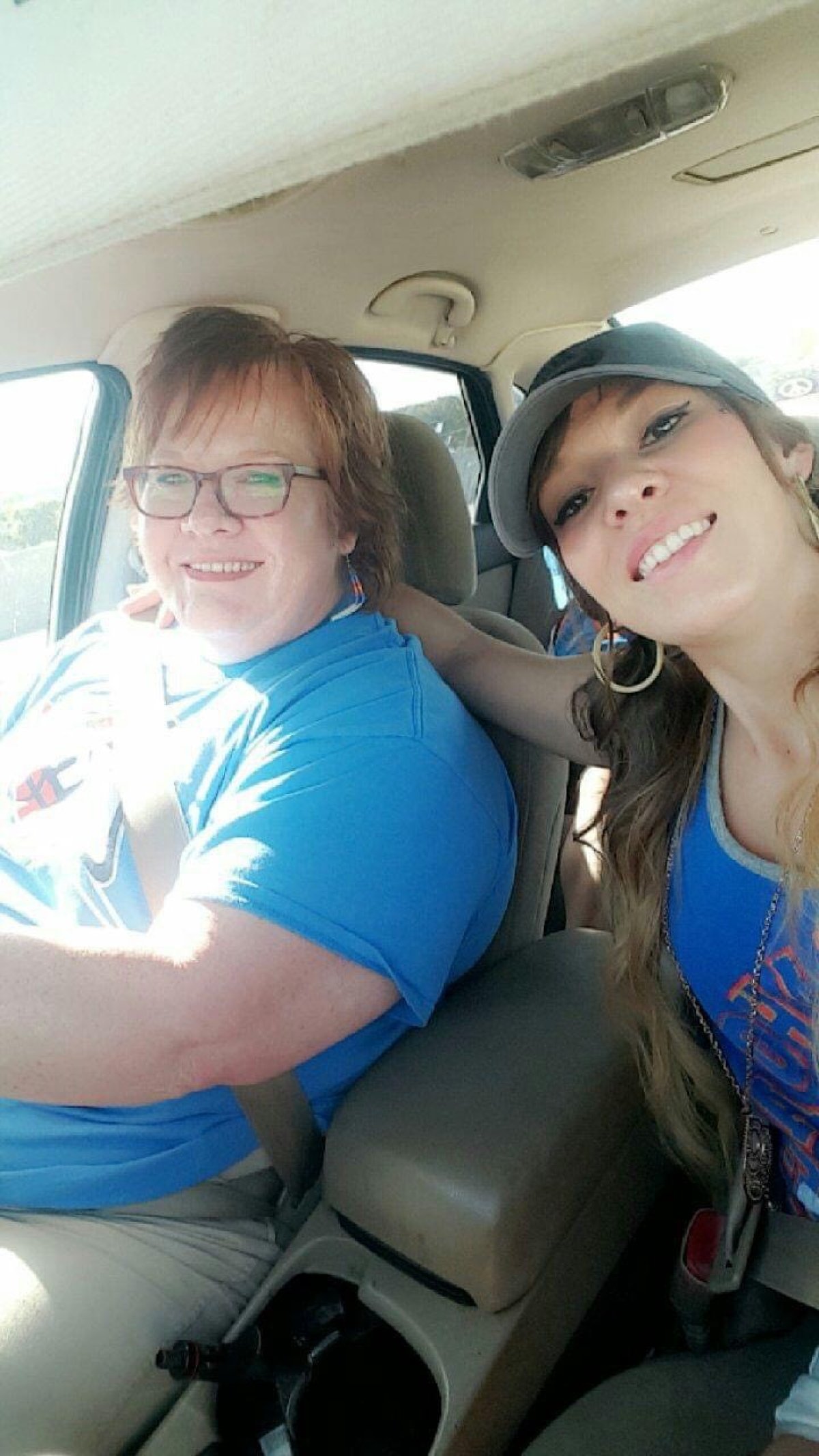It was a tow truck driver who discovered the keys to the car where Emily Morgan and Totinika Elix's bodies were found, the day after police had stopped searching the area for evidence, according to a new report into the unsolved 2016 murders on tribal land.
The report from the Northeast Oklahoma Indigenous Safety and Education Foundation (NOISE), made available exclusively to Newsweek, calls for the Bureau of Indian Affairs or FBI to take over the investigation of the murders on Choctaw Nation land from the Oklahoma State Bureau of Investigation, which it criticizes for mistakes and a lack of attention to the case.
The failure of the investigation to make progress is just one example of how thousands of cases of murdered and missing Native Americans are not given high enough priority by law enforcement authorities, according to NOISE and other advocates.
"Emily Morgan, and her son, who is now 14, and her mom, and her family have not received justice for her murder," said Karissa Newkirk, president of Murdered and Missing Indigenous People Chahta, an independent nonprofit that focuses on Choctaw cases. "The way that that particular case was handled was not up to law enforcement standards."

Oklahoma's Bureau of Investigation declined to answer questions, other than to say it was still the lead law enforcement agency on the case, which remains open. The FBI declined to confirm or deny whether they are investigating the case. The Bureau of Indian Affairs did not respond to a request for comment.
NOISE, a non-profit that supports the families of missing and murdered indigenous people, argues that under a 2020 court ruling, cases such as this one should be handled by federal agencies.
Morgan was a member of the Choctaw Tribe, and her body was found, along with Elix's, on tribal land the afternoon of Aug. 26, 2016.
The two women had been shot in the head in Morgan's car, which was parked in the carport of an unoccupied home near Bache, Oklahoma—within the boundaries of the Choctaw Nation's reservation.
The home was a known location for drug deals, said Kim Merryman, Morgan's mother and a member of the NOISE board of directors.
Murder is the third leading cause of death for Indigenous women, according to the Centers for Disease Control.
While thousands of Indigenous women disappear each year, their cases are less likely to be investigated by law enforcement than those involving other ethnicities.
The bodies of Native American women are 135 percent more likely to go unidentified than the remains of women of other ethnicities in the U.S., according to a paper published in the Criminal Justice Policy Review journal in March 2023.
Questions for Law Enforcement
The day after the bodies were found, a tow truck driver who arrived at the unoccupied home to remove the vehicle found the car keys in the yard.
"If the tow truck driver just walks around and finds the keys—law enforcement has access to metal detectors and all kinds of things," said Olivia Gray, president of NOISE's board. "So, why didn't they find the keys?"
She said that it was not clear whether police had looked for evidence in a nearby pond and added that neighbors across the street from where the killings had happened had not been questioned—even when they called police to say they had heard something that night.
"I mean, how good of a job could they have done at that point?" Gray said.

Without presenting evidence, NOISE said it believed the case had been deprioritized because the victims were indigenous, Black, poor and less educated.
"We know that Emily was a teen parent. We know that she had addiction issues," Gray said. "When law enforcement views you as a criminal, they're not going to prioritize your case."
In 2020, the U.S. Supreme Court ruled in McGirt v. Oklahoma that a large portion of eastern Oklahoma is an American Indian reservation.
The ruling means that state and local governments cannot prosecute Native Americans who commit crimes on the reservation—responsibility for major crimes such as murder is therefore with federal agencies.
But although the state agency communicated with the federal authorities, it remains in charge of the case, to the disappointment of NOISE and the victims' families and other advocates.
"This case should be reviewed and have FBI agents assigned to it actively right now," Newkirk said. "The county owes a public apology to the family for not collecting evidence properly, because when these FBI agents come in, as they should, because of McGirt, they're not going to have very much evidence to process."
NOISE's report involved interviews with witnesses, people who knew Morgan, Elix and others close to the case.
Coercion
In 2011, when Morgan—a one-time competitive athlete and former Little Miss Choctaw Princess for District 4—was 18 years old, she became a single mother. Her son's father was in prison, and Morgan was struggling to make ends meet on her own, Merryman said.
Around this time, a friend of the child's father approached Morgan and offered to help her, giving her $500, according to the NOISE report.
After a few months, the report says he asked Morgan to start delivering drugs for him in exchange for money. About six months later, the man coerced Morgan into a sexual relationship, Merryman said.
Gradually, he started covering all of Morgan's bills and rent—refusing to pay if Morgan turned him down for sex or refused to make explicit videos that he then used to blackmail her into continued sexual favors.
With little education and a child to support, Morgan had few options.
"He had her dependent on him by getting her bills where she couldn't pay for them," said Morgan's mother.

He had also gotten Morgan addicted to drugs, her mother said.
It was common for the man to demand sex whenever Morgan met him to pick up drugs so she started asking people to ride with her, the report said.
This is how Elix, a non-Native friend of Morgan's, happened to be in the car.
NOISE said that Morgan began a relationship with someone else in 2014, who a year later robbed and beat up the man.
Merryman had taken the suspicions of a motive for the murder to the Oklahoma investigation bureau, but they had told her it was circumstantial, there was no weapon and could not bring charges, the report said.
In 2016, Morgan had told her mother she had been to rehab and wanted to stay clean and go to college. But in the days before her death she had clearly been worried and had asked around for help in obtaining a gun, the report said.
The case remains unsolved.
Uncommon Knowledge
Newsweek is committed to challenging conventional wisdom and finding connections in the search for common ground.
Newsweek is committed to challenging conventional wisdom and finding connections in the search for common ground.
About the writer
To read how Newsweek uses AI as a newsroom tool, Click here.








